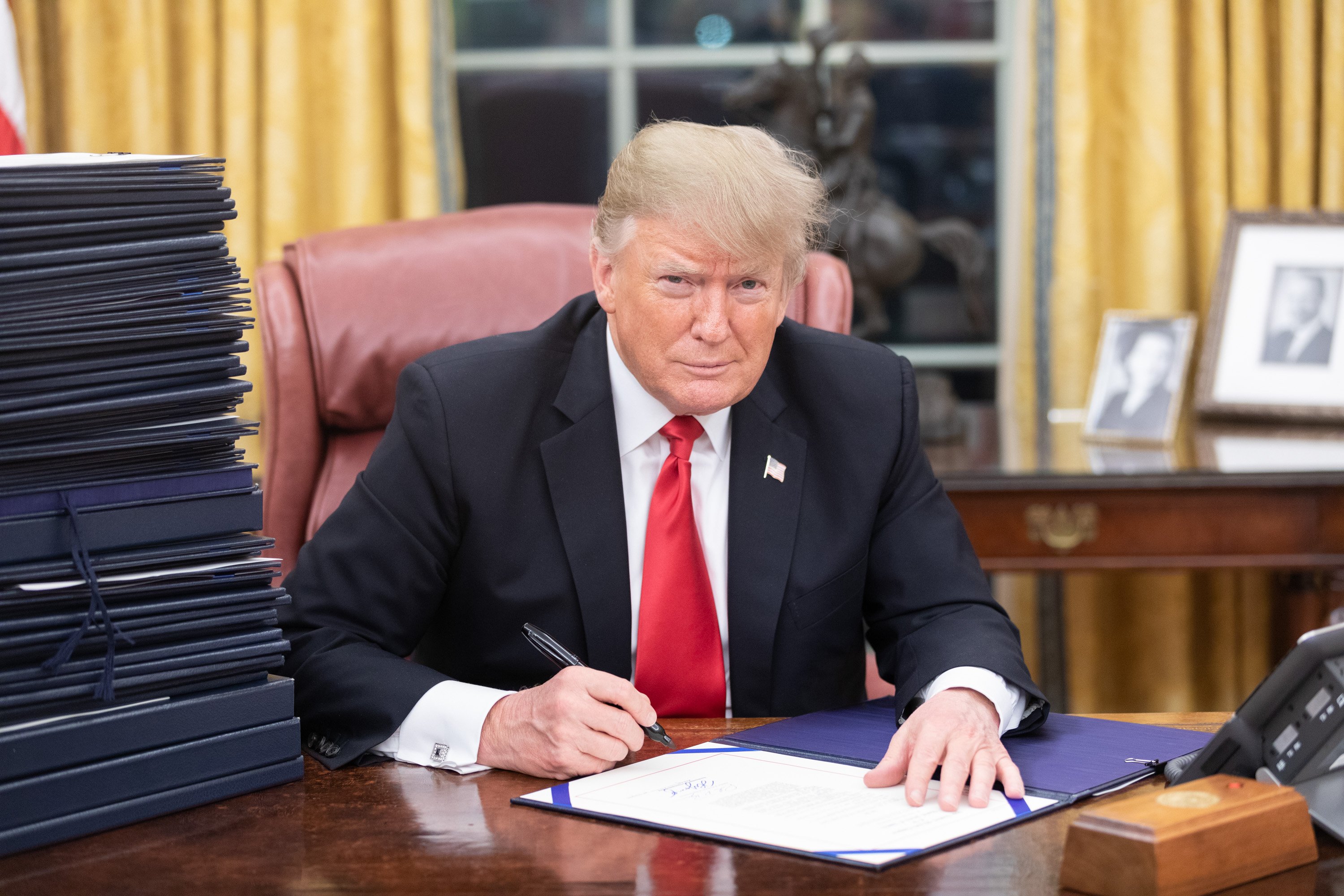White Hate but Islamic Terror? Charleston, Hate Crimes and Terrorism Per Quod
What are the implications of failing to deem the Charleston shootings "terrorism"?

Published by The Lawfare Institute
in Cooperation With

What are the implications of failing to deem the Charleston shootings "terrorism"?
In the wake of Wednesday’s atrocities, commentators have been seriously questioning the public and political inclination to characterize shooter Dylann Roof as a deranged lone wolf rather than a terrorist. And not long after the Department of Justice announced it was investigating the shooting as a potential act of domestic terrorism as well as a potential hate crime, FBI Director James Comey set off a renewed flurry of debate with his remarks distinguishing the events of Charleston from the kind of "political act" that qualifies as terrorism.
Netizens have taken particular interest in contrasting the immediate reaction to Charleston with the immediate reaction to the 2013 Boston Marathon bombings. Presumably these two attacks have emerged as fertile subjects for comparison partly because of the early dearth of evidence that either alleged perpetrator had official ties to or an operational role in a designated terrorist organization.
South Carolina Senator Lindsey Graham is among those who have been singled out for his disparate treatment of Charleston and Boston. Commenting on what the Charleston shooting might signify for his home state, Senator Graham described Roof as “one of these wacked out kids” and stated, “I don't think it's anything broader than that.”
This presents a sharp contrast with the views Graham espoused back in 2013 on the appropriate treatment of Dzhokhar Tsarnaev: "This man, in my view, should be designated as a potential enemy combatant and we should be allowed to question him for intelligence gathering purposes to find out about future attacks and terrorist organizations that may exist that he has knowledge of, and that evidence cannot be used against him in trial. That evidence is used to protect us as a nation."
Judd Legum of Think Progress cited the Senator’s statements as a glaring example of our collective insistence on seeing violence motivated by Islamic extremism as a systemic threat while minimizing right-wing supremacist violence as the work of individual madmen. As Charles Kurzman and David Schanzer noted in a New York Times op-ed the day before the Charleston attack, such bias is particularly indefensible given the data: Attacks carried out by Muslim Americans account for 50 fatalities in the thirteen and a half years since 9/11, while plots by right-wing extremists have resulted in 254 fatalities between 9/11 and 2012.
The conflation of terrorism with Islamic extremism is an undeniable error. But distinguishing Boston and Charleston need not unequivocally boil down to bias of this particular kind.
Consider President Obama’s reactions shortly after each attack—reactions that, if read in isolation, might seem to reflect this bias. On April 16, 2013, the day after the Boston bombings, President Obama delivered a speech in which he stated the following:
[G]iven what we now know about what took place, the FBI is investigating it as an act of terrorism. Any time bombs are used to target innocent civilians it is an act of terror. What we don’t yet know, however, is who carried out this attack, or why; whether it was planned and executed by a terrorist organization, foreign or domestic, or was the act of a malevolent individual. That’s what we don’t yet know.
Now contrast this with President Obama’s speech last Thursday, one day after the attacks in Charleston, which nowhere made mention of terrorism:
The FBI is now on the scene with local police, and more of the Bureau’s best are on the way to join them. The Attorney General has announced plans for the FBI to open a hate crime investigation. We understand that the suspect is in custody. And I’ll let the best of law enforcement do its work to make sure that justice is served.
Superficially speaking, there are at least two ways to read the administration's initial decision to investigate one attack as a terrorist act and the other as a hate crime. A critic might contend that President Obama, like Senator Graham, appears to have untenably reserved the terrorist designation for Muslim extremists. Alternatively, we could take President Obama’s words at face value and recognize the weapon of choice as a critical factor in how a massacre tends to be classified when facts remain sparse and the evidence is still forthcoming. Those words again: “Any time bombs are used to target innocent civilians it is an act of terror.”
And so our inquiry evolves. Is Dylann Roof being widely portrayed as a hater and not a terrorist because, based on the available evidence, he is a white supremacist and not a Muslim extremist? Or is it because his weapon of choice was a gun and not a bomb?
It seems easy enough to conclude that the former, if true, is unacceptable; the white-crime/Muslim-
All of this I note in service of a simple point. When it comes to mass killings, it is a mistake to explain to the public in the immediate aftermath that the difference between hate crime and terrorism boils down to the nature of the attacker's motivations. The inevitable result will be confusion and anger from commentators who attribute the differentiation to unjustifiable bias and take to Twitter to spit back at the government language from any one of several broad definitions of terrorism that resurface in hundreds of statutes and regulations. For example, following Comey's remarks, critics have latched onto the FBI's own definition of terrorism, as promulgated by the DOJ's research arm, as well onto as the State Department's similarly expansive definition of terrorism as it appears in 22 U.S.C. 2656f(d) (which is not a criminal statute but a set of provisions detailing requirements for the Secretary of State's annual country reports on terrorism).
Conversely, the definition of terrorist acts in the actual criminal code tends to favor President Obama's reading. For instance, 18 U.S.C. § 2332b(g)(5) defines "federal crime of terrorism" in two parts: First, the offense must be "calculated to influence or affect the conduct of government by intimidation or coercion, or to retaliate against government conduct"—which is presumably what Comey was somewhat inartfully alluding to with his "political act" comment. Second, the offense must also violate any one of a host of statutory provisions that effectively cover violence of two general types: (a) involving particular targets (for example, mass transportation systems, energy facilities, government targets, or U.S. persons abroad), or (b) using particular weapons (such as biological weapons, explosives, or weapons of mass destruction). This is presumably the sort of distinction Obama was drawing upon after the Boston bombings. Attention to the nature of the target and the choice of weaponry is less clearly embedded but nonetheless evident in a number of other statutes, such as 6 U.S.C. 444(2) (definitions relating to anti-terrorism technology) and 22 U.S.C. 2780(d) (transactions with countries supporting international terrorism).
Now for a moment let's put aside the acceptableness of the assorted criteria that officially and informally influence our definition of terrorism. Given the tenor of the current debate, I wonder whether there is a way to actually assess whether the gun-crime/bomb-terrorism or the white-crime/Muslim-terrorism binary holds more sway over our national consciousness. Perhaps, for example, we could examine our treatment of Muslim shooters versus white bombers. But this is difficult, in part because bombings in the United States are relatively rare to begin with, and because few in the last decade appear to be attributable to whites. (Note that there is room to expand this type of analysis—to, say, white men who deliberately fly planes into buildings.) Meanwhile, Muslims are responsible for only a small fraction of the many mass shootings that have taken place in the U.S. over the last decade. Two high-profile instances, both from 2009: Nidal Malik Hasan, the Palestinian-American psychiatrist who was court-martialed after fatally shooting 13 people at Fort Hood, and Abdulhakim Mujahid Muhammad (born Carlos Bledsoe), the convert to radical Islam who killed one soldier and wounded another at a Little Rock recruiting station.
Notably, despite considerable pressure and crit
My own view is that, as suggested by these examples and others, the Obama administration has a record of approaching the crime-terrorism distinction with care. Predictably, this caution has opened up the administration to a tremendous amount of criticism. For whatever functional and legal ends that judicious use of the “terrorism” tag may serve for the administration, the issue of nomenclature is obviously deeply emotional for the public.
And for good reason. How we choose to classify these attacks has material consequences. Sometimes these consequences are immediately tangible. For example, the President’s critics picked him apart for choosing not to classify the Fort Hood attacks as terrorist acts because that choice also meant that the soldiers who were killed and wounded in the shooting were not eligible for Purple Hearts. The controversy raged on until this year, when Congress broadened the definition of an attack by a foreign terrorist organization to include attacks “inspired or motivated by the foreign terrorist organization,” allowing the soldiers to be awarded Purple Hearts and accompanying benefits.
But in most cases, as in the case of Charleston, the stakes are subtler. Terrorism is more than a word; it has displaced the term "hate crime" as the ultimate cipher, one that informs us which atrocities need only be lamented and which atrocities warrant wholesale reconsideration and reconstruction of our social fabric. It is understandable, this fear of ours, that failing to affix the “terror” label to the horrors of Charleston amounts to permitting our grief to be relegated to the bottom of an ever-expanding grief hierarchy, for that hierarchy has real implications for how we as a nation choose to allocate our resources and how valiantly we battle which demons within.
I agree that only by recognizing the systemic nature of the derangement that motivated Roof and others like him can we properly treat root causes and contain future threats. But I also hope for the day when the t-word no longer commands such a monopoly on our willingness to do that.



-(1).jpg?sfvrsn=b91ff6a6_7)

